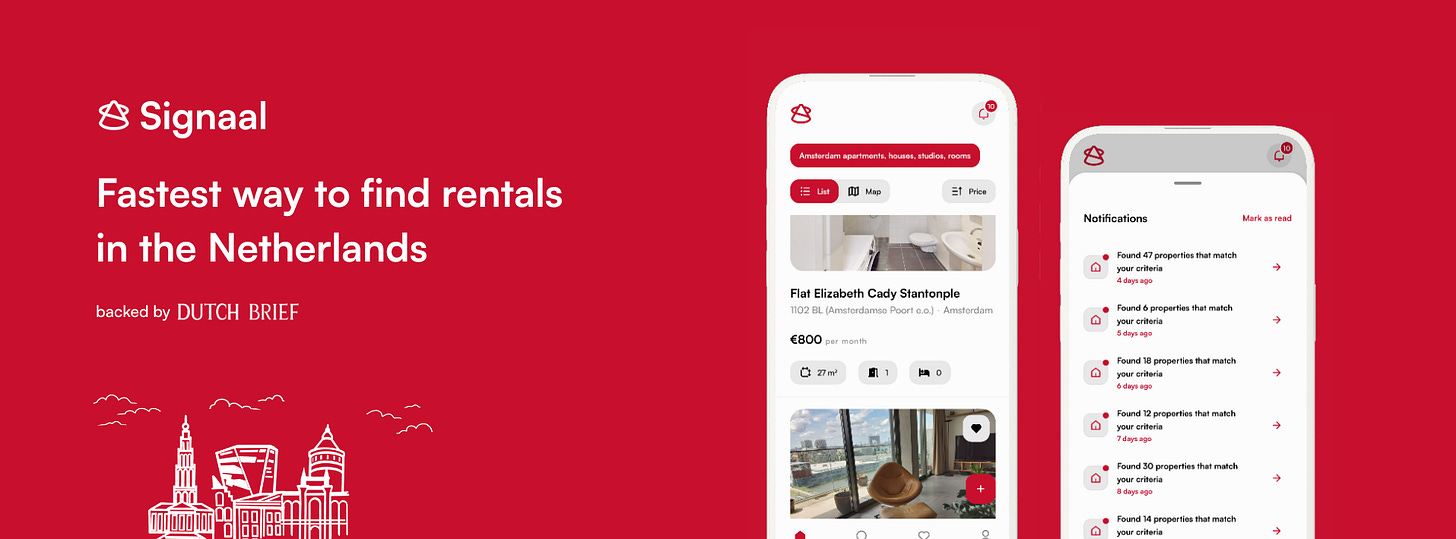Mass Claim Launched Over “Illegal” Energy Price Hikes
If you had a variable energy contract since 2017, you may have paid too much; consumer groups want refunds that could reach thousands per household, but energy companies disagree and are appealing.
Before we begin, a quick shoutout to our sponsor, Signaal:
Looking for housing in the Netherlands?
Signaal helps you skip the endless scrolling by tracking new listings from trusted platforms and alerting you when something matches your needs, all in one easy-to-use app.
Dutch consumer groups have started a class action against six major energy suppliers (Vattenfall, Eneco, Essent, Energiedirect, Budget Energie, and Greenchoice), saying they wrongly raised prices mid-contract for customers on variable tariffs. The move follows a March 25, 2025, ruling by the Amsterdam Court of Appeal in a Vattenfall case, which said the company’s “amendment/change clause” was unfair and that interim hikes were invalid. Because many suppliers used similar terms, the groups argue millions may have overpaid, in some cases thousands of euros per household.
The claim is being led by the Consumers’ Association (Consumentenbond), the Homeowners’ Association (VEH) and the Consumer Competition Claims Foundation (CCC). Talks with suppliers failed, so they are going to court. Early sign-ups already top 225,000+ consumers, and campaign pages say variable-tariff customers since April 1, 2017, could be affected (that’s when the now-criticised clause entered many general terms).
The appeal court found Vattenfall’s clause and its use unclear to customers, stating that consumers must have a genuine opportunity to cancel if prices change. It ordered repayment of overcharges in the individual case. Vattenfall disputes the judgment and has gone to the Supreme Court (cassation), arguing variable rates can go up or down and that its terms allow this. There have also been mixed lower-court rulings in other supplier cases, so the legal picture isn’t 100% settled yet.
What Could This Mean For You?
If you had a variable contract (not fixed) any time since 2017, you may have a claim if your supplier raised prices between regular moments (e.g., extra hikes beyond the expected schedule). The groups say total overpayments could reach €15–€25 billion across ~5 million households. Amounts for each family will vary by contract and dates.
You can join via Consumentenbond, VEH or CCC. Joining is usually free at this stage; any fee or success commission is explained on the signup pages.
What happens next? The class action will go through the Amsterdam court under Dutch mass-claims rules (WAMCA). The judges will first decide admissibility/representativeness and the scope of the case, then move to liability and any compensation. A final outcome could take time, especially with the Supreme Court review pending in the Vattenfall matter.
There is now a national effort to recover money for customers on variable contracts who faced additional price increases. Suppliers deny any wrongdoing. Until higher courts make a ruling, nothing is certain. Still, if you have had a variable contract since 2017, it’s worth checking your eligibility and registering to be included if compensation is awarded.




